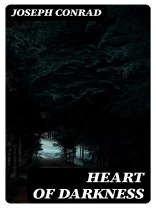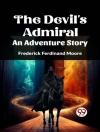Joseph Conrad’s ‘Heart of Darkness’ is a profound exploration of imperialism and human nature, intricately woven into a narrative that traverses the depths of both Africa and the human psyche. Written in an impressionistic style, the novella employs rich symbolism and evocative imagery to convey the moral ambiguities of colonialism. Through the journey of Charles Marlow into the African Congo, Conrad illustrates the darkness within potential golden ambitions, challenging the reader to confront the corrupting influence of power and the complexities of civilization versus savagery. Conrad, a Polish-born author who spent years at sea, infuses his work with personal experiences and keen observations of colonial practices. His maritime background and experiences in the Congo fostered a critical perspective on European imperialism, allowing him to highlight the stark contrasts and ethical dilemmas faced by individuals in the pursuit of wealth and power. This novella not only reflects his own disillusionment but also serves as a critique of the broader societal norms of his time. ‘Heart of Darkness’ is essential reading for those seeking a deeper understanding of the psychological effects of colonization and the moral quandaries that accompany imperial pursuits. Conrad’s masterful storytelling invites the reader to navigate the murky waters of morality, making this work an enduring classic that remains relevant in contemporary discussions about race, exploitation, and humanity.
Circa l’autore
Joseph Conrad (born Józef Teodor Konrad Korzeniowski; 1857–1924) was a Polish-British writer, whose complex narratives and profound themes secured him a place as one of the greatest novelists in the English language. Despite not speaking English fluently until his twenties, Conrad’s mastery in style and his depth in prose brought to life tales woven with the threads of the sea, reflecting his own experiences in the British merchant marine. He is best known for his novella ‘Heart of Darkness’ (1899), a chilling tale of colonialism, moral corruption, and the darkness within the human soul. The narrative, framed as a story within a story, follows Charles Marlow as he ventures into the African Congo, symbolizing the journey into the subconscious and confronting the inherent savagery within civilized man. ‘Heart of Darkness’ has been profoundly influential, inspiring numerous works, including Francis Ford Coppola’s ‘Apocalypse Now.’ Conrad’s writing style, characterized by its rich descriptive power and use of narrative frames, delves into themes like existentialism, individualism, and the clash of cultures. Other seminal works such as ‘Lord Jim’ (1900) and ‘Nostromo’ (1904) further exemplify his literary contributions, showcasing his narrative skill and psychological insights. Conrad’s work continues to be celebrated for its darkly evocative power and its piercing examination of the complexities of the human condition.












